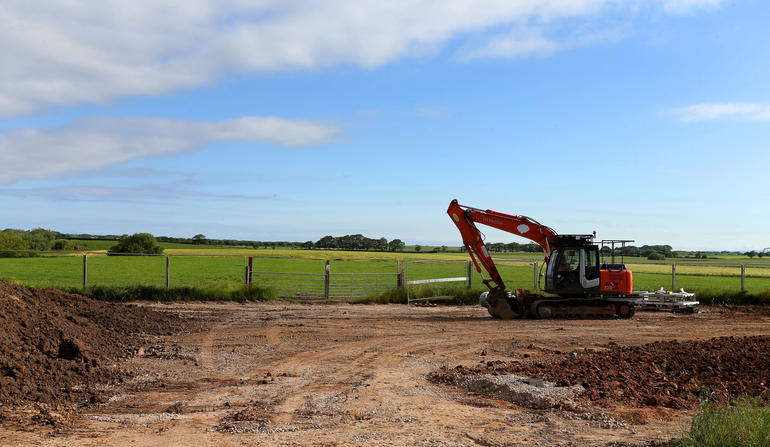In a briefing paper which will be distributed to dioceses across the country, the Church concluded shale gas exploration could be considered morally acceptable subject to a number of conditions.
The conditions include whether the exploration was part of an energy policy committed to a low carbon economy, robust regulation and compensation for those affected. The paper called for ongoing research and monitoring of the impacts on people's health and environment.
The paper was drawn up by the Church of England's public affairs council after increasing pressure by local campaigners for the Church to make its position on fracking clear.
The paper concludes: "We recognise and sympathise with the concerns of individuals and communities who are directly affected by fracking activities in their neighbourhoods.
"It is essential that their legitimate concerns are heard and appropriate protections and compensation are in place."
Energy companies hope that the Church's support of fracking could pave the way for drilling to take place on church land.
The Church of England owns more than 100,000 acres of farmland, including several areas rich in shale gas.
Tony Bosworth, campaigner at Friends of the Earth, told The Times he was disappointed in the Church's conclusions.
He said: "The Church of England are mistaken. Opening up a new fossil fuel industry will not help us move to a low carbon economy and regulation cannot make fracking safe."
Speaking on Premier News Hour, Rev Alex Mabbs from Operation Noah said he was very disappointed with the Church's decision to back fracking.
He told Premier that fracking was unlikely to lead to a low carbon economy. He said: "I just don't buy it; if we are keen to move to a low carbon economy there is existing technology that we can invest in so that it becomes more widespread."
Rev Mabbs added that he believed the government were better off investing in renewable technology.
"We really need to be working on finding renewable sources of energy that treat the countryside and nature more kindly. Fracking is destructive of the local area," he said, "I don't know how you compensate wildlife that has lost its habitat or fish in rivers that have been poisoned by the water supply."




